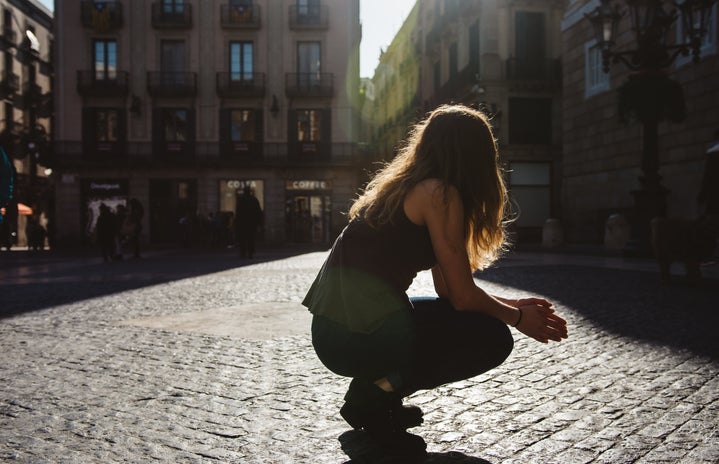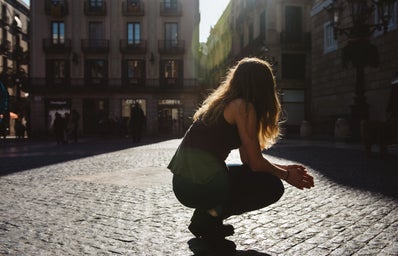The outbreak and spread of COVID-19, AKA coronavirus, has forced the world to retreat into social distancing and self-isolation. Businesses have been forced to close their doors, friends are having their weekly coffee dates over face time, people are hoarding rolls of toilet paper and colleges are sending students home to finish their classes online. The spring semester is often a very popular time for both juniors and seniors to pack their bags and study abroad. However, for many this year, the sudden and rapid outbreak of coronavirus forced nearly all colleges to shut down their programs and bring their students home early. Having studied abroad in the fall semester myself I know how stressful being away from home, traveling and acclimating to a new way of life can be. I can’t imagine packing on the stress of a global outbreak to experience, but that’s exactly what thousands of students were facing just weeks ago. I wanted to get the first-hand perspective of one of these students, so I asked my good friend Emma who was studying abroad in Seville, Spain what the experience was like for her.
HC: What was it like living in Spain? Did you enjoy the food, culture, etc?
Emma: “Before studying abroad everyone warned us about several phases that most people go through when they move to another country. I was lucky in that my honeymoon phase with the culture never really ended. Just as I was in the beginning, I continuously found myself in awe of the Spanish lifestyle. The laid back but vibrant culture of Seville, though mesmerizing, also pushed me outside of my comfort zone. Twice a day, six times a week we got home-cooked meals from our host Mom allowing us to experience Spanish food through home cooking. In Spain however, it is less about what the food is and more about the culture surrounded by food. Leisure is important in Spain which includes frequently going out to eat, taking several hours to enjoy the meal, and talking to whoever you are sharing it with. Enjoying leisure time and the present is a lesson I hope to take back with me”.
HC: How was it traveling both within and outside of Spain?
Emma: “Traveling was also an amazing part of my experiences abroad. Since my time was cut so short, I spent the majority of my time traveling through Spain. I loved seeing other parts of Spain, though I loved Seville the best and loved coming home to my favorite city. I wish I got to spend more time outside of Spain, but I know that I will be coming back to continue doing that.”
HC: What were your living arrangements like?
Emma: “My housing was different from your average study abroad experience. My host mom owned the entire apartment building we lived in and lived on the top floor. The three bottom floors were 6 apartments with American study abroad students. In my apartment alone, I had a roommate and 6 flatmates, but overall in our building, we lived with about 25 girls in total. Along with the friendships I made with people in Seville, I got to experience studying abroad with girls from all over the US.”
HC: What was your favorite thing that you experienced while abroad?
Emma: “The relationships that I created with the other students, my professors, other Spanish students and the Spanish family I babysat for.”
HC: When did you start to see a change in Europe due to Coronavirus?
Emma: “I had heard about students being sent home from Italy after only three weeks of their program. At that point, no one was anticipating the same thing could happen to us.”
HC: What was your reaction when you first heard the president’s plan to close international travel? What was the reaction of those around you?
Emma: “One of my roommates came into our room at four in the morning to tell us about the travel ban. One hour later she bought a flight and two hours later she had packed up everything and was gone. Some people’s parents had bought them a flight and sent it to them in the middle of the night before they knew what was going on. There was generally just a lot of panic and confusion as it was the middle of the night. My roommates and I stayed up all night talking to our parents and waiting for answers.”
HC: Did Spain go into lockdown, and what was your reaction at that time?
Emma: “I convinced my parents to let me stay after the travel ban was in place (which still freely allowed US citizens to travel). Because of the unpredictability of the situation, or my own nativity that I would be able to finish my program without leaving Spain, several of my roommates and I stayed through the beginning stages of Spain’s lockdown. It shocked me how fast it happened when days before we were out at bars and shopping. The Spanish tend to be social, with the entire family out at restaurants until midnight on weekdays, however, everyone began abiding by the rules so quickly. I walked the streets only once to say bye to some of my other friends who lived nearby. All stores besides grocery stores and pharmacies were closed, and they were fully stocked. It progressed eventually to where you needed a doctor’s note to travel to the pharmacy and the Spanish police stopped groups bigger than two. While this change was sudden, I felt comforted in that the government could enact such a fast change while the US has yet to match it. You could feel the sense of community every night when we would clap and sing Spanish songs from our balconies in honor of healthcare workers risking their lives to help those in need.”
HC: When did you realize it was time to travel back into the US and what was it like?
Emma: “Basically only when my parents forced me to. A week passed since the travel ban began and there were threats of either the Spanish or American border not allowing students to travel. My parents told me they bought a flight and I immediately broke down into tears because even though I had been fighting to stay, my study abroad experience was officially over. Traveling was stressful especially with a higher amount of uncertainty. On top of dealing with the loss of my new friends, worrying about their safety traveling back, mourning my favorite semester so far, I was worried about how I would be treated when I returned. Students I know were stranded in foreign countries and airports all over the world either due to canceled flights or being quarantined since they showed cold symptoms. We filled out a form explaining which countries we had been to if we had been in contact with anyone who tested positive and other basic information. After stepping off the plane, we turned in our forms, they asked if we had symptoms and took our temperature.”
HC: How is it now that you’re back in the US? Are there any precautionary measures you are taking?
Emma: “It is a big adjustment to go from living in Europe with 25 girls to returning home unexpectedly to be confined to a couple of rooms and not being able to go near anyone. Since you can have Coronavirus but not exhibit symptoms for two weeks. To protect my family I will be self quarantined away from them for two weeks in the hope that I don’t end up exhibiting symptoms.”
This global pandemic is creating some really crazy times for people all over the world, but hopefully, we can all get through the outbreak by staying positive, social distancing, washing our hands and binge-watching a whole lot of Netflix.





